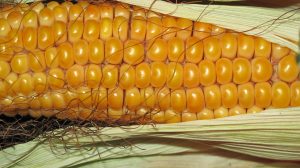Matt Liebman, Iowa State University
 The development of modern, industrial agriculture has been characterized by large reductions in biological diversity, both across landscapes and within farming systems. Loss of biodiversity is particularly evident in the U.S. Corn Belt. Simplification of crop and non-crop vegetation in the Corn Belt has resulted in the production of huge amounts of crop and livestock products, but also in multiple challenges, including soil erosion, water quality degradation, herbicide-resistant weeds, new crop diseases, volatility in farm profitability, and declines in populations of pollinators, natural enemies of crop pests, and wildlife species. Results of two experiments conducted in Iowa addressing the impacts of diversification on agroecosystem performance indicate that (1) conversion of small amounts of cropland to strips of reconstructed prairie provided disproportionately large improvements in soil conservation, nutrient retention, and densities of native plants and birds; and (2) diversification of the dominant corn-soybean rotation system with small grain and forage crops led to substantial reductions in agrichemical and fossil hydrocarbon use, lower herbicide-related aquatic toxicity, decreased crop damage by certain pathogens, and improved soil quality, without compromising profitability. These patterns suggest that increasing biodiversity can be a viable strategy for improving agroecosystem health and resilience in the U.S. Corn Belt.
The development of modern, industrial agriculture has been characterized by large reductions in biological diversity, both across landscapes and within farming systems. Loss of biodiversity is particularly evident in the U.S. Corn Belt. Simplification of crop and non-crop vegetation in the Corn Belt has resulted in the production of huge amounts of crop and livestock products, but also in multiple challenges, including soil erosion, water quality degradation, herbicide-resistant weeds, new crop diseases, volatility in farm profitability, and declines in populations of pollinators, natural enemies of crop pests, and wildlife species. Results of two experiments conducted in Iowa addressing the impacts of diversification on agroecosystem performance indicate that (1) conversion of small amounts of cropland to strips of reconstructed prairie provided disproportionately large improvements in soil conservation, nutrient retention, and densities of native plants and birds; and (2) diversification of the dominant corn-soybean rotation system with small grain and forage crops led to substantial reductions in agrichemical and fossil hydrocarbon use, lower herbicide-related aquatic toxicity, decreased crop damage by certain pathogens, and improved soil quality, without compromising profitability. These patterns suggest that increasing biodiversity can be a viable strategy for improving agroecosystem health and resilience in the U.S. Corn Belt.
Matt Liebman is a professor of agronomy and the H.A. Wallace Endowed Chair for Sustainable Agriculture at Iowa State University. He became a fellow of the American Society of Agronomy in 2009 and was a member of the National Academies committee that produced the 2015 report titled “A Framework for Assessing Effects of the Food System.” His research, teaching, and outreach activities focus on ways to improve environmental quality and agricultural productivity while reducing dependence on agrichemicals and fossil fuels. His specific interests include diversified cropping systems, weed ecology and management, and the use of native prairie species for soil, water, and wildlife conservation, and for biofuel production.

